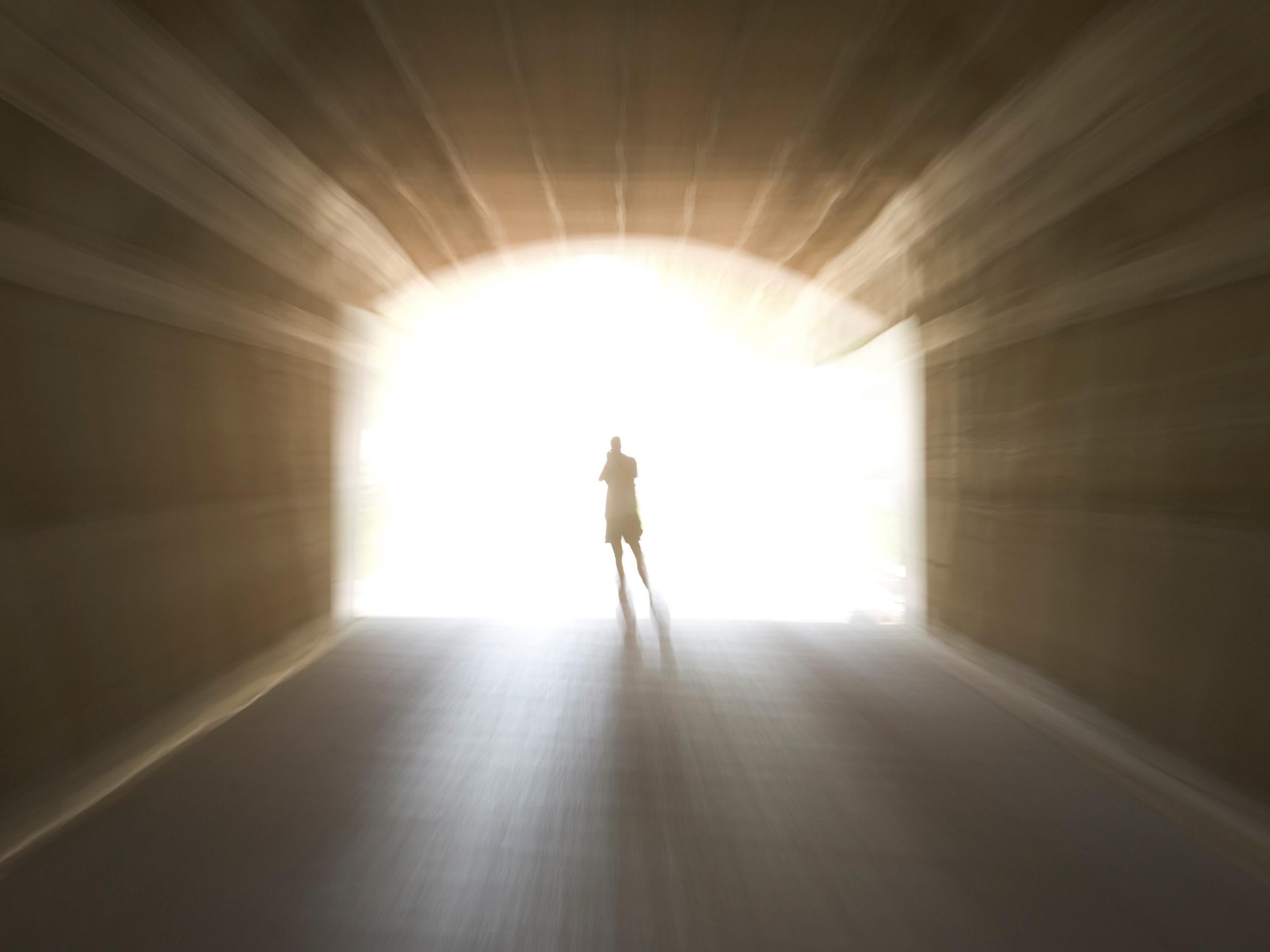One in 10 people have had a hallucination-triggering ‘near death experience’, study suggests
‘Twenty years later I can still remember how I felt’ says woman who felt total peace when she almost drowned as a child

Your support helps us to tell the story
From reproductive rights to climate change to Big Tech, The Independent is on the ground when the story is developing. Whether it's investigating the financials of Elon Musk's pro-Trump PAC or producing our latest documentary, 'The A Word', which shines a light on the American women fighting for reproductive rights, we know how important it is to parse out the facts from the messaging.
At such a critical moment in US history, we need reporters on the ground. Your donation allows us to keep sending journalists to speak to both sides of the story.
The Independent is trusted by Americans across the entire political spectrum. And unlike many other quality news outlets, we choose not to lock Americans out of our reporting and analysis with paywalls. We believe quality journalism should be available to everyone, paid for by those who can afford it.
Your support makes all the difference.Seeing your life flash before your eyes, experiencing time slow down or having the feeling of drifting out your body may be more common than first thought, as a study suggests one in 10 people has had a near death experience (NDE).
Danish researchers studying the body’s response to imminent mortal danger, real or otherwise, said these experiences are triggered by the same mechanism that causes lucid “wakeful” dreaming.
Respondents reportedly variously meeting past family members, feeling their soul “sucked out” or being paralysed by a demon sat on their chest – a phenomenon which has since become a recurring dream in one of the participants.
Previous research in patients whose hearts stopped has suggested between 5 per cent and 8 per cent of people experience an NDE.
But the Danish study used questionnaire responses from 1,034 participants, across 35 countries, and found nearly 300 people reported some kind of psychological or spiritual experience.
The majority – 73 per cent – said the experience was unpleasant, but of the 106 people who met the criteria for a “true” NDE, as defined by the Greyson NDE scale, 53 per cent said it was pleasant and just 14 said it was unpleasant.
This group included people who nearly drowned, people who were physically assaulted and women during childbirth.
One respondent who nearly drowned as an eight-year-old child explained how she was overcome by a sense of “total peace”.
“Twenty years later I can still remember how I felt,” she told the researchers. “It was an amazing feeling.”
The most common experience was feeling time slowing down or distorting, which was reported by 87 per cent of people, followed by exceptionally fast thoughts (65 per cent) and vivid senses (63 per cent).
Around half had an out of body experience, and one woman said that childbirth was the trigger for her NDE. “I felt like I just died, and I went to heaven,” the anonymous 36-year old said. “I heard voices, and I was sure I would not come back to my life. It was weird. I could not control my body.”
One US man who was dragged out to sea as a child saw his life flash before his eyes and recalls seeing dead family members and a bright light before falling back through a tunnel to his body.
The phenomenon is thought to be linked to the overlap of sleep and waking states. During sleep cycles the brain enters a state known as rapid eye movement (REM) where the brain is active as during wakefulness and dreaming is more vivid.
This state can intrude into people’s waking moments, and lead to memorable dreams, and even feelings of paralysis. These waking dreams were experienced by about half of the NDE group, compared to a 16 per cent of those who didn’t have an NDE.
The findings have not yet been published in a peer reviewed journal but were presented at the European Academy of Neurology congress.
“We confirmed the association of near-death experiences with rapid-eye movement sleep intrusion,” said study’s lead researcher Dr Daniel Kondziella, a neurologist at the University of Copenhagen.
“Identifying the physiological mechanisms behind REM sleep intrusion into wakefulness might advance our understanding of near-death experiences,” he added.
Join our commenting forum
Join thought-provoking conversations, follow other Independent readers and see their replies
Comments